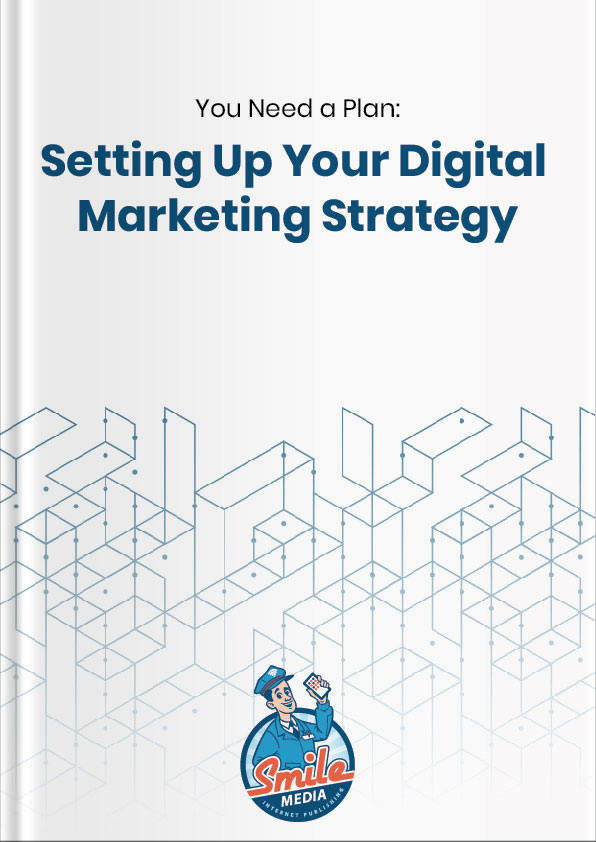Technological advancements and improvements in the economy have been providing the manufacturing industry with a continued boost. There are more opportunities now for manufacturers to grow and expand than there were in the past. But with an increase in opportunity, also comes competition.
As with any unique industry, your manufacturing marketing strategy will need to address the particular needs and challenges facing your industry, and you’ll need to do so better than the competition. That being said, manufacturing marketing can be a bit more complex than your average B2C - or even B2B - marketing strategy.
Marketing a Complex Industry
When you are a manufacturer or distributor, you don't market to customers; you market to other businesses or retailers. Therefore, your marketing strategies should be significantly different than the marketing techniques of businesses who are marketing directly to customers. Here are a few aspects of manufacturing marketing that are unique to the industry, resulting in the need for a different approach to marketing:
Target Audience(s)
An added level of complexity comes with the fact that, as a manufacturing company, you need to appeal to a few different audiences within the companies you are targeting. For example, you are likely marketing to the engineers and buyers of a company, both of whom will have different knowledge and interest in your products. Therefore, it’s necessary to address the pain points of each audience when developing your strategic marketing, which can be a lot more time consuming.
Sales Process
The sales process across many industries has changed over time. Even up until a few years ago, there were still a lot of salespeople knocking on doors to sell products and services. This still happens today, but now that the modern buyer has a wealth of information available online, there is less of a need for the door-to-door salesperson.
Traditional vs. Digital Marketing
Will old school marketing common techniques would involve pretty pictures, colorful leaflets, or billboards screaming your company name and its benefits. But those aren't the most powerful marketing tools anymore. Manufacturing marketing has evolved with changing tastes, generations, and technology forcing us to adapt to the current market conditions. If you want to survive the competition and achieve success, you must improve your manufacturing marketing plans and change with the times.
The Importance of Marketing in Manufacturing
Marketing is important in any industry. It’s how your business gets noticed. In the manufacturing sector, it is important because that's how you become visible to resellers or distributors who will sell your products. With effective manufacturing marketing, you can eliminate the need to sell individual products from your facility or open stores of your own to sell your products.
Therefore, choosing the best manufacturing marketing strategies requires careful planning and efforts that will increase your company's profitability. For best results and chances of success, you cannot keep using the same strategies that you used ten or fifteen years ago. You must adopt newer strategies for better results.
Here are some ways to improve your manufacturing marketing strategies:
1. Website Design
Your business website is where your prospects can find you online. It's that important link between you and your buyer. Before you create the website, you must know who your ideal buyer is and what steps you can take to attract them.
But even that isn’t enough. Your website can’t be a static tool anymore. It must be built to attract, engage, and convert leads. To create the ideal website, you must create your target buyer personas. Once you know what your ideal buyer looks like, your website must be able to stand out from other businesses when your target audience searches for you online.
This is where effective Search Engine Optimization (SEO) strategies come into play. In addition to having a great looking website, your business website must be responsive, i.e., accessible across all devices. It must be built on a flexible CMS platform such as WordPress, and optimized for search, so that prospects find you easily. It must also be filled with content that targets the pain points and challenges of your buyers.
There should be calls to action on every page, and the website must be connected to a CRM or marketing automation system. Only when your website checks all these boxes, will it be successfully able to draw more visitors and convert them into buyers.
2. Inbound Marketing
A surefire way to be found online is through inbound marketing tactics. Most of the research today happens online, so you must use strategies to be more visible on the internet, instead of cluttering the neighborhood with billboards. Inbound marketing refers to the organic methods used to boost online traffic and visibility while also promoting products and services. It is used extensively by all industries, and though manufacturers have come late to the party, they are also reaping the benefits of organic promotion.
There are several ways inbound marketing works:
Search Engine Optimization (SEO) is one the most popular methods of inbound marketing. When your website and content are optimized for search, you are more easily visible in search results, and prospects find you without any extra effort on your part. SEO can work wonders when done right. By optimizing every page of your website for search engines, you can get closer to prospects, and often without having to spend any money.
Blogging and vlogging are two other ways to reach more buyers, especially if you can establish yourself as an authority on your industry. Vlogs (short for video blog) have become popular these days because of their sensory appeal. In a vlog, the audience gets to see you and hear your voice instead of just reading a written piece of content. When you talk about a topic that's a pain point among prospects, you directly connect with your audience and form a connection. When done right, this often has a higher conversion rate than other types of inbound marketing.
Email marketing is another popular form of inbound marketing. Manufacturers have started to send out curated emails to their existing and potential customers, in the hopes of prompting high-quality lead generation. Your audience can choose to receive informative and useful emails from you, which solve some of their challenges. The higher the quality of your content, the more subscribers you will get and retain.
The biggest benefit of inbound marketing is that it can often be accomplished with little to no monetary investment. Plus, is relatively easy to incorporate into a manufacturing marketing strategy, regardless of the size of the business.
3. Paid Promotion
The best results can be achieved by using a combination of organic and paid marketing. Different types of paid marketing are Pay-Per-Click (PPC) advertisements, online banner ads, remarketing/retargeting, and social media ads. Although all of these methods are used for a successful manufacturing marketing strategy, PPC advertisements are the most popular among them, because the results are so tangible.
PPC advertising involves placing small ads alongside organic search engine results. For instance, if you are a garment manufacturer specializing in cotton clothing, your PPC ad will appear when someone searches online for cotton clothing manufacturers. PPC ads are inexpensive but have high returns. They are no longer than a sentence or two and contain a link to your website. You pay only when the ads are clicked.
PPC is a very useful paid promotion method for manufacturers who aren't ranking well on search engines. With PPC ads, you can control the amount of money you spend, and also get very detailed reports that let you keep track of your spending on each click, along the number of people who click on the ads and then email or call you directly.
One of the most important benefits of PPC advertising is instant results. The moment the ads go live, they start driving leads to your site.
4. Social Media Marketing
Everyone is on social media these days. Therefore, if you want to find your target audience easily, get on social media. B2B companies often make the mistake of avoiding social media, because they believe that social media marketing is only for B2C companies. On the contrary, social media is a great way for manufacturers to connect with prospects online.
When you have social media profiles, your company gets more attention and gets in front of decision makers. Facebook, Twitter, and LinkedIn are some of the most popular sites that help you boost brand recognition while helping you make meaningful connections. With the help of social media, you can share product photos, create contests and surveys, and also create brand ambassadors.
YouTube is also a brilliant tool because you can directly interact with your prospects and target audience through live streaming, or share helpful videos, demonstrating your products or providing educational content. Social media platforms can also be used to get ideas and feedback about products and services. You can use product forums to learn how your target audience feels about your products or services and make changes or additions based on the feedback.
5. Set a Budget
Getting success with your manufacturing marketing strategy requires some amount of financial investment. While it may be tempting to take advantage of as many free marketing tools as you can, to get the best results, you will need to invest in some of your efforts. Therefore, if you want to significantly improve your strategy, you also need to have a proper budget.
If there’s no budget in place, it is easy to keep overspending. To prevent overspending and ensure you don’t run out of money while running a manufacturing marketing campaign, make sure you have a set budget and stick to it.
Marketing Matters in Manufacturing
Regardless of the size of your business, manufacturing marketing is beneficial to every manufacturer. If you’re new to the world of marketing for the marketing industry, it can be a little hard to figure things out initially. But if you keep these tips in mind, the process should become easier.
Plus, manufacturing marketing services are offered by many leading digital marketing companies. If you’re looking for manufacturing marketing services, get in touch with the expert team at Smile MEDIA and get started on your marketing journey today.










